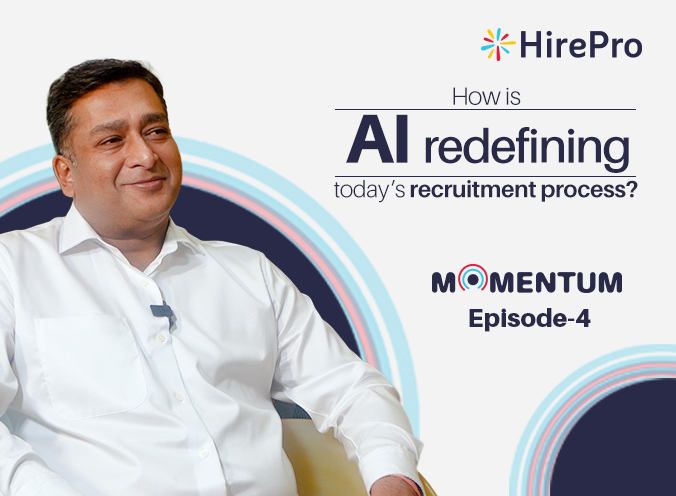Companies are constantly looking at innovative ways to attract top talent, especially given today’s competitive scenario. One avenue that has gained significant traction is campus engagement activities. These activities serve as a bridge between academia and the professional world, offering numerous benefits for both companies and students. As we delve into the significance of campus engagement, it is crucial to understand its evolution in tandem with changing recruitment strategies, particularly in light of the ongoing AI revolution and online remote proctoring exams.
Decoding the world of campus engagement activities
At its core, campus engagement encompasses a variety of initiatives aimed at fostering connections between companies and students within a university setting, such as:
- Career fairs and information sessions, which provide students with insights into various career paths and allow companies to showcase their offerings
- Workshops and guest lectures, which offer specialised knowledge and insights, facilitating skill development and industry exposure
- Hackathons and coding competitions, which encourage creativity and problem-solving skills, offering hands-on experience and opportunities for collaboration
- Social events and volunteering opportunities, which build a sense of community and social responsibility, contributing to holistic development
- Mentorship and internship programmes, which provide invaluable guidance and practical experience, paving the way for future employment
- Alumni engagement programmes, which leverage alumni networks for mentorship and networking opportunities, fortifying connections within the community
Navigating the digital transformation of campus engagement activities
In recent years, there has been a noticeable shift towards more interactive and technology-driven recruitment methods. Traditional methods of recruitment are being complemented, if not replaced, by AI proctoring and online platforms. AI-driven solutions offer advantages such as enhanced efficiency, objectivity and scalability, particularly evident in online remote proctoring exams.
Beyond recruitment processes, AI applications and digital platforms also help facilitate remote engagement activities. Virtual career fairs, webinars and networking sessions have become commonplace, enabling companies to engage with students regardless of geographical constraints. These platforms offer immersive experiences, interactive features and data analytics capabilities, augmenting the overall effectiveness of engagement initiatives.
Why should companies invest in campus engagement activities?
Campus engagement activities offer numerous benefits for companies, some of which include:
- Brand awareness and recognition: Campus engagement activities offer companies a unique platform to establish themselves as employers of choice among the student community. Positive interactions and experiences during these engagements can significantly influence students’ perceptions, shaping their view of a company as a desirable place to work. This aspect of brand building is critical to attracting top talent, especially in competitive job markets.
- Early talent identification: Engaging with students on campus allows companies to identify and connect with high-potential individuals early in their academic careers. This proactive approach to talent acquisition means companies can attract students before they actively enter the job market, providing an opportunity to recruit interns and cultivate long-term relationships. Such early identification and engagement are instrumental in building a pipeline of qualified candidates ready to contribute to the company’s success upon graduation.
- In-depth understanding of Gen Z: Campus engagement activities also serve as a valuable tool for companies to gain insights into the expectations, skills and work ethics of Gen Z candidates. This generation brings a unique set of values and preferences to the table, and direct interaction through campus initiatives can help companies tailor their recruitment strategies and workplace environments to better align with these characteristics.
- Innovation and fresh perspectives: Collaboration with students through campus engagement activities can bring fresh ideas and perspectives into a company, fostering innovation and overall development. The diverse backgrounds and skill sets of students can challenge conventional thinking, leading to breakthroughs that might not have been possible within the confines of the company’s existing talent pool.
How can campus engagement help students?
Not only companies but students also gain tangible benefits from campus engagement activities. The benefits include:
- Valuable insights into different careers and industries: Campus engagement activities offer students a rare glimpse into the professional world beyond their textbooks. Through interactions with diverse companies and industry professionals, students are exposed to a plethora of career opportunities and industries, which helps them understand their career preferences better. This exposure is invaluable in an era where the AI revolution is reshaping job landscapes, making it essential for students to be agile and informed about their career choices.
- Access to opportunities: One of the most tangible benefits of campus engagement activities is the direct access they provide to internship and job opportunities. Companies participating in these activities often scout for potential talent directly from the campus, offering students a streamlined path to secure internships and even full-time positions. This direct recruitment pipeline is especially relevant in fields heavily influenced by technology, where companies seek candidates with a forward-thinking approach and a foundational understanding of artificial intelligence.
- Skill development: Beyond academic learning, campus engagement activities play a crucial role in skill development, equipping students with essential competencies not covered in their traditional curriculum. Ranging from leadership workshops to coding boot camps, these activities foster soft skills like teamwork, communication and problem-solving, alongside technical skills pertinent to navigating the artificial intelligence-dominated future.
- Real-world experience: The transition from academic theory to practical application is made seamless through real-world experiences gained from internships and project collaborations. These opportunities bridge the gap between academia and industry, providing hands-on experience that is crucial for understanding the challenges and opportunities within various industries as well as enhancing employability in a competitive job market.
- Networking opportunities: Networking is a pivotal aspect of professional growth, and campus engagement activities provide a fertile ground for connecting with industry professionals. These interactions can lead to valuable mentorship opportunities, insights into industry trends and even job offers, increasing a student’s chances of securing internships or full-time positions after graduation.
Challenges in carrying out campus engagement activities
Despite the clear benefits, implementing effective campus engagement activities is not without its challenges, some of which include:
- Time and resource constraints: Both educational institutions and companies often find it challenging to balance campus engagement activities with their core academic or business functions. Allocating time, financial resources and personnel to these activities can strain already limited resources.
- Identifying the right audience: Reaching the specific student groups that align with a company’s recruitment needs or an institution’s educational goals can be like finding a needle in a haystack, necessitating meticulous planning and research.
- Standing out from the competition: In a crowded marketplace of ideas and opportunities, capturing the attention and interest of students amidst numerous companies vying for their engagement can be daunting.
- Ensuring inclusivity and accessibility: Creating activities that are inclusive and accessible to all students, regardless of their socioeconomic background, physical abilities or learning preferences, may pose a significant challenge, requiring deliberate planning and effort.
- Measuring the impact of activities: Quantifying the ROI from campus engagement efforts is a complex task, given the qualitative nature of many of its benefits, necessitating a data-driven approach to evaluating success.
How to elevate your campus engagement game: Strategies for success
- Prioritise and collaborate: Effective campus engagement necessitates collaboration with internal teams, like HR and marketing, to share resources and responsibilities, ensuring that core business functions are complemented rather than compromised.
- Identify target campuses and student groups: A thorough understanding of the demographics and career interests of potential candidates is essential for tailoring engagement activities that resonate with the target audience. This step ensures that the impact is maximised and a deeper connection is cultivated with potential candidates.
- Develop engaging and interactive activities: The key to captivating student interest lies in creating activities that are both engaging and relevant. Companies should encourage creativity and innovation in selecting formats and topics, ensuring that these activities are not only informative but also inspiring.
- Utilise digital platforms and social media: In an age dominated by digital communication, leveraging online platforms and social media is a game-changer for campus engagement. Engaging with students through these channels offers a dynamic and accessible way to connect with and reach a wider audience, fostering engagement and interaction beyond physical boundaries.
- Partner with campus organisations: Building strong partnerships with campus organisations, such as student clubs, career centres and diversity and inclusion departments, can amplify reach and impact and ensure the inclusion of a broad spectrum of students with varied interests and needs.
- Measure and evaluate results: Adopting a metrics-driven approach to evaluate the success of engagement activities is critical. Tracking attendance numbers, student feedback and job applications received can offer valuable insights for refining strategies, ensuring that companies remain relevant and impactful.
The takeaway
Campus engagement activities are indispensable in bridging the gap between academia and industry. They offer a myriad of benefits that extend from skill development to real-world experience. As companies navigate the challenges and explore strategic solutions for effective engagement, the long-term benefits of investing in these activities cannot be overstated. By fostering a symbiotic relationship between students and the professional world, campus engagement activities not only enrich the academic experience but also pave the way for the future leaders of tomorrow, ensuring a win-win situation for both parties.


















